L.A.’s Mayor Bass toplines tribute to life, legacy of late AADAP stalwart.
By P.C. Staff
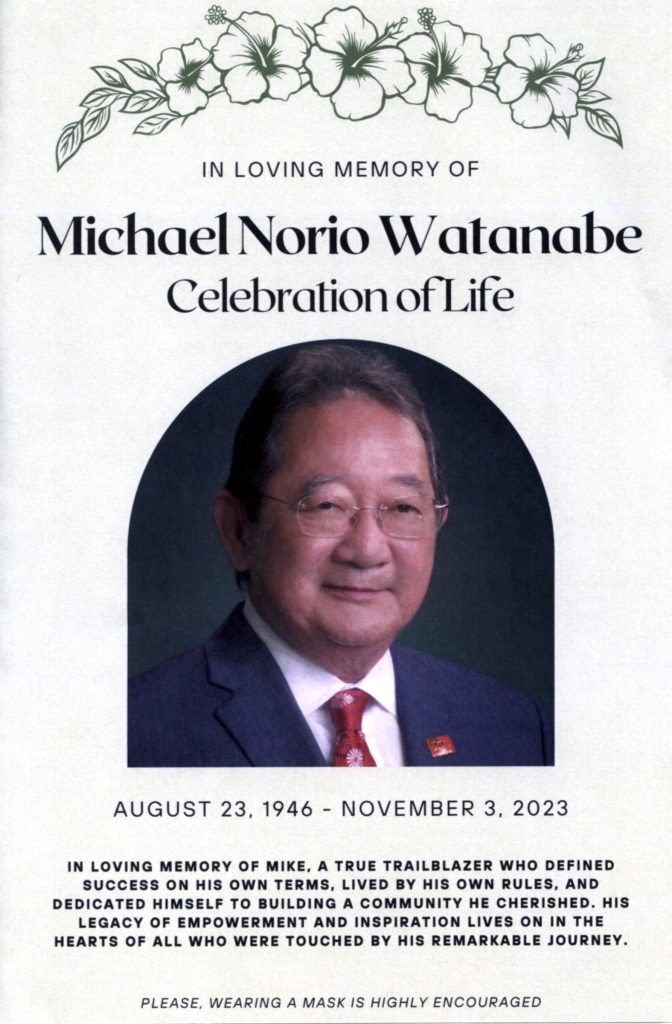 The celebration of life for Mike Watanabe, as he was known to most, took place at Holman United Methodist Church, not far from his home in Los Angeles’ Crenshaw District on May 23. The longtime leader of Asian American Drug Abuse Program, aka AADAP, died Nov. 3, 2023 at 77. The gathering was the embodiment of AADAP’s credo: People need people.
The celebration of life for Mike Watanabe, as he was known to most, took place at Holman United Methodist Church, not far from his home in Los Angeles’ Crenshaw District on May 23. The longtime leader of Asian American Drug Abuse Program, aka AADAP, died Nov. 3, 2023 at 77. The gathering was the embodiment of AADAP’s credo: People need people.
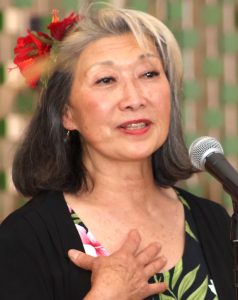
Nancy Sekizawa
With master of ceremonies duties ably discharged by AADAP board member and retired All People’s Community Center Executive Director Saundra Bryant, the list of performers — a Hawaiian opening by the Kaio Foundation, a rendition of “A Thousand Cranes” by kotoist June Kuramoto, a performance of “Lands of the Rising Sun” sung by “Atomic” Nancy Sekizawa — and speakers — including Baptist Pastor Louis Lewis, Buddhist Rev. Ray Fukumoto, nephew Ed Shioyazono Richter, Professor Herman DeBose, Ron Wakabayashi, Nick Nagatani, Yvette Enrique (AADAP Therapeutic Community alumna) and Jose Esqueda (director of Youth and Programs), and Elaine “Yoko” Takahashi — was a testament to the far-reaching impact of Watanabe’s life’s work at AADAP. He spent 46 years at the organization, 39 as its president and CEO, until stepping aside in 2021.
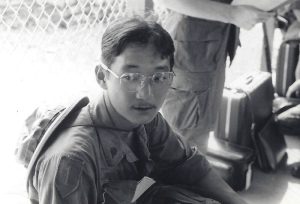
Watanabe served during the Vietnam War in the 1960s. (Photo: Courtesy of the Michael Watanabe Family)
Born Aug. 23, 1946 in Pa’auilo, Hawaii, in 1957 Watanabe’s family and he moved to Los Angeles. He graduated from Venice High School, where he was known for his prowess in gymnastics, in 1964. After serving a perspective-changing 2-1/2years in the Army, including a yearlong tour of duty in Vietnam where he was a helicopter door gunner and mechanic circa 1969, he earned a B.A. from California State University Northridge and a master’s in social work from UCLA. In 2017, CSUN awarded him an honorary doctor of humane letters.
During his years at AADAP, Watanabe’s greater community involvement also included serving as president of Asian Pacific Policy & Planning Council, in which he oversaw its Drug, Alcohol, and Tobacco Committee; serving on the L.A. County Narcotics and Dangerous Drugs Commission and the Asian and Pacific Islander Constituent Committee; and as a founder of the National Asian Pacific Families Against Substance Abuse.
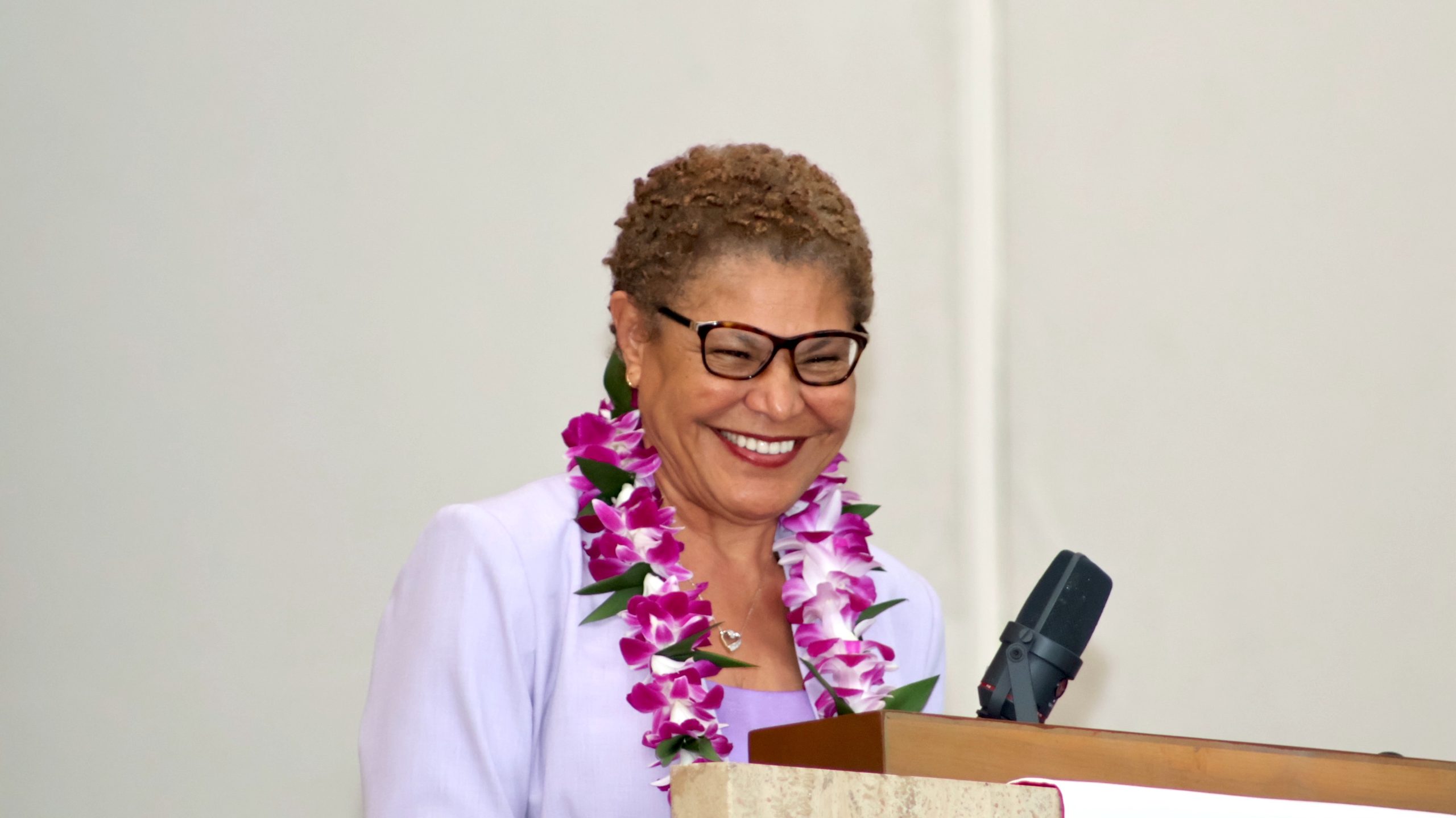
Los Angeles Mayor Karen Bass fondly remembers her late friend Mike Watanabe at his celebration of life held May 23. (Photo: George Toshio Johnston)
If the measure of Watanabe’s reach was exemplified by the stature of who came to pay tribute to his life and achievements, none was bigger than that of Los Angeles Mayor Karen Bass. In 2022, at AADAP’s 50th anniversary, then U.S. Rep. Bass was the recipient of the Mike Watanabe Leadership Award. (See Oct. 7, 2022, Pacific Citizen, tinyurl.com/2f5w8c3f)
“The impact that he’s had on all of our lives will go on and on and on through generations, and I was just honored that I had the opportunity to come here today and once again share the impact that Mike Watanabe had on me,” Bass told the audience.
Bass wasn’t alone in her assessment of halo effect that her late friend’s life had on others.
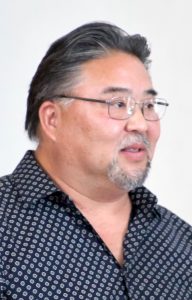
Dean Nakanishi
Bryant: “Mike was not a selfish leader. He understood that his gifts should be shared with the entire community. He mentored many, including myself, he invited me to events, meetings fundraisers, and introduced me to movers and shakers.
Nakanishi: “Mike treated the AADAP staff as his family, no matter if you were a new staff member or worked here for many years. He raised so many of us to be the community leaders we are today.”
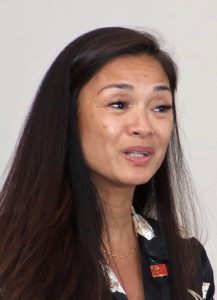
Yvette Enrique
Enrique: “For me, Mike was more than a CEO of AADAP. He has been a mentor, a role model most of all, an inspiration. Mike has been a driving force for me in my transformation from being an addict for 23 years to where I am today.
Richter: “He led by example, having overcome his own challenges. ‘Check yourself,’ he would say, ‘because not being honest with yourself is part of the process of learning to be honest with yourself.’”
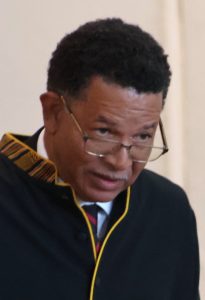
Louis Lewis
Lewis: “Today we’re celebrating one who has been such a blessing to all of us as a mentor, as a friend — so many life lessons.”
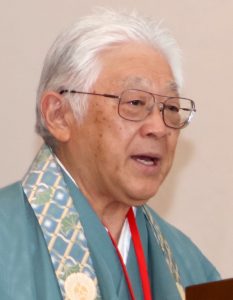
Ray Fukumoto
Fukumoto: “As we celebrate Mike’s wonderful life, I would like to express my thanks to Mike for making this gathering possible … The causes and conditions of this gathering is a gift we have received from Mike, for without him today’s gathering would not be possible.”
Herman DeBose: “When Mike and Susie got married, Mike asked me to serve as his best man. At that point, I realized that he saw me as a true friend … Our primary friendship has been centered on the desire, I think, to make the world a better place for those who are less fortunate than us.”
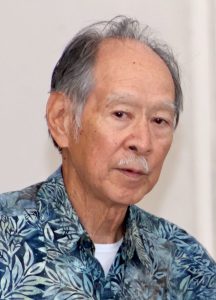
Nick Nagatani
Nagatani: “In 1972 when AADAP became a federally funded entity, many including myself viewed it as working for the enemy, no longer answering to the people, to the community but answering to the man. … Mike, I thank you for creating bridges to bring our communities closer together — and for myself, for helping me change my outlook.”
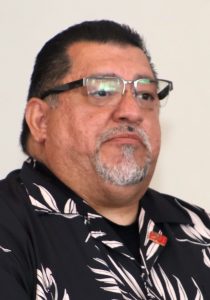
Jose Esqueda
Esqueda: “Mike taught us a lot. He taught us how to be on task, how to be prepared for anything. … He was a mentor, a friend, a coach and a great co-worker. I will always honor and cherish Mike’s teachings and always be grateful for the opportunity to be all I could be at AADAP.”
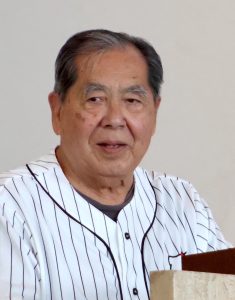
Ron Wakabayashi
Wakabayashi: “He’s been gone for a few months but his superpower was still to be able to bring us together and he’s done it again today.”



